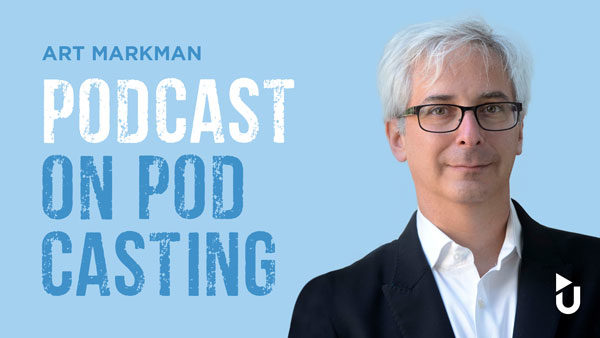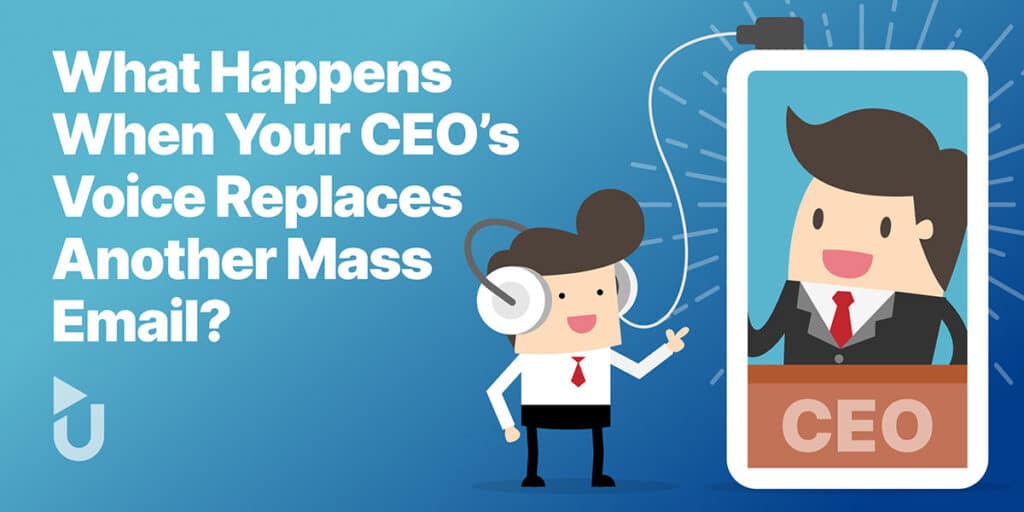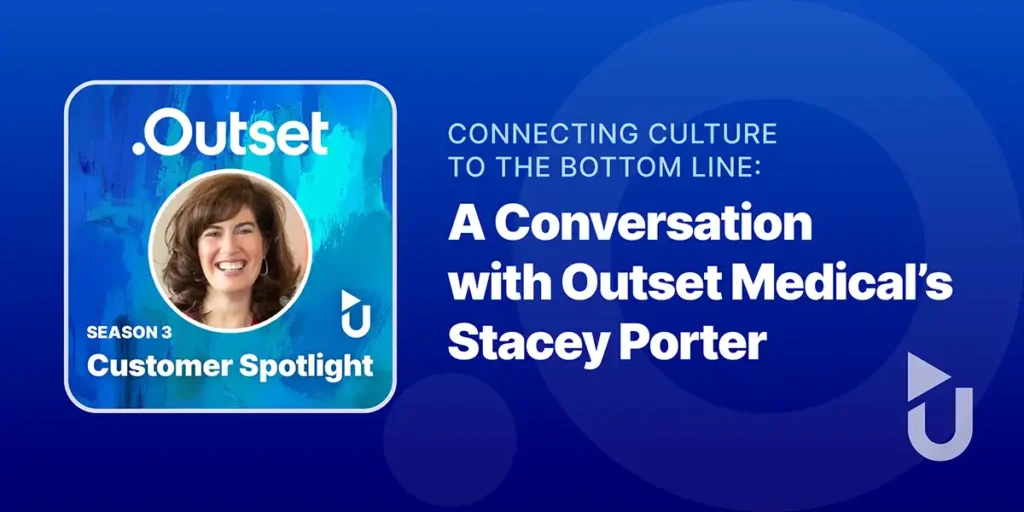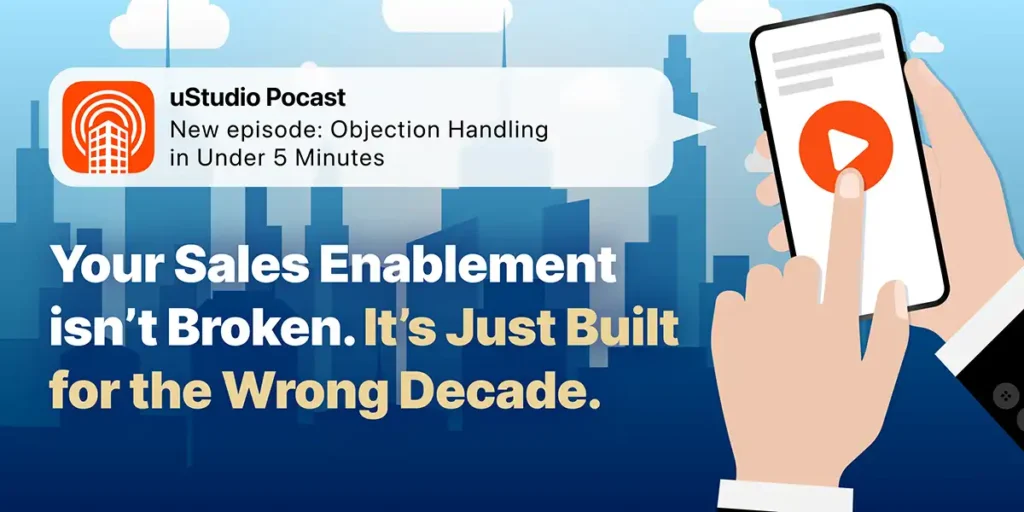Cognitive Scientist and Podcast Guru Dr. Art Markman Says Podcasts Are Great for Change Management
uStudio Staff | Podcasting

On our latest podcast, we were joined by psychology professor and Smart Thinking author Dr. Art Markman, co-host of the popular NPR podcast Two Guys On Your Head. Dr. Markman explains why organizations struggle to implement change effectively and how corporate podcasting can help. Listen to the full episode or read excerpts below.
You lead a program at the University of Texas that helps business leaders impact the way people work. Tell us more about that.
We created a program called the Human Dimensions of Organizations. A lot of what we’re trying to do is to help people to deal with other people. If you think about a lot of the education people get, they get trained as an engineer, so they’re very good technically, or they get trained in business, so they’re really good with money. But a lot of the problems that people face on a day-to-day basis are actually people problems. “I’ve got this colleague who annoys me. I can’t motivate this person to do what I want them to do. I’m worried about the culture in my organization.” And there are very few classes you take in all of your education that actually train you to deal with those kinds of people issues.
What we thought was, if you look at the liberal arts, the humanities, the social sciences, the behavioral sciences, what we have is this wealth of knowledge about the way people work. Why not find ways to bring that to people who are going to be in leadership roles, who are going to be the ones who are creating the corporate culture or the organizational culture? How do we help them to understand the kinds of levers you have at your disposal to influence people and effect change as individuals, as groups, and as cultures?
What challenges do leaders face in trying to implement change?
If you think about it, titles create distance. There’s even distance in an org chart, right? If you’re the CEO or the COO — or you’ve got any “C” before your name — you have created distance between yourself and other people. It can be hard for people who aren’t part of that inner circle to feel like, “Oh, I could just walk up to the CEO and have a conversation.” When you sit above people, it’s really hard to seem like a three-dimensional person to the people who are working for you.
You can actually begin to feel disconnected because you’re thinking, “Well, nobody’s telling me anything. I don’t understand what the experience is of the rank and file person. If I walk up to somebody at random, they’re going to tell me everything’s fine. They won’t feel comfortable to say the things that might actually be really important for me to know.
The neat thing about podcasting is that it paves the way for those informal hallway conversations to happen. Employees can walk up to you and start a conversation around something that you might have said on a podcast. And then that can turn into a conversation that gives you information that you wouldn’t have had otherwise, which turns out to be really important.
In a recent episode of Two Guys on Your Head, you were discussing “How Knowledge” vs. “Why Knowledge.” What are those?
So “How Knowledge” is “how do I do something?” For example, what process do I go through in order to make something happen? If I was trying to describe to somebody how to start my car, I could give them a complete description of sitting down in the car, and putting their foot on the brake pedal, and even them telling them which one was the brake pedal vs. the gas pedal, and pressing the button. That’s the “How Knowledge.” The “Why Knowledge” has to do with what makes the How Knowledge work. In the car example, it’s what is it about the system that actually enables the car to do what it does?
A lot of times people are very good with How Knowledge. They learn a lot of procedures for getting through the world, but they don’t really understand why things work the way they do. And it turns out, you can’t solve any new problems unless you actually understand why the world works the way that it does. You can only keep executing the same procedure.
Is “How Knowledge” or “Why Knowledge” more important for change management?
Change management is one of the hardest things any organization goes through because the brain is lazy, and it wants to keep doing what it did last time. If you force people to do something new, they’re going to still try to revert back to what they did in the past.
Think about anybody who’s tried to change a tennis swing or a golf swing. It just feels wrong for awhile, and you want to blame something for it, so you’re going to blame the organization. You’re going to say, “Well, this place just sucks, because I don’t feel comfortable at work anymore.” But if you understand it’s going to be painful for about six weeks, but at the end of it you’re going to be better for having done this, then you will do it, and you actually feel good. You feel like, “Well, we’re going to collaborate on this change together and we’re all going to experience a little bit of pain, but it’s okay.” That’s such an important thing to do. And the funny thing is, organizations are so good at sending out messages that we’re going to change, but then they don’t set expectations about how uncomfortable the change process itself is going to be, and they often then fail to get the buy-in to the change that they need for that reason.
One of the things about change management is that “why knowledge” matters a lot. If you can give people a real understanding of the why beneath that change, what is it that this is going to accomplish that’s going to be different from what we did in the past? How are we going to even know that we’re succeeding because we’re doing something different? All of those things give people some additional motivation to keep at it when they just want to fall back to doing what they were doing in the past. It also helps people to overcome a little bit of the frustration that you get when you’re trying to change your behavior, because doing something new is hard.
Why does podcasting in particular help with change management?
Podcasts can be a particularly effective way of giving people insight into that “Why” component. They can help explain ‘here’s this thing that you’ve been doing for year, let me help you to understand why you do it that way. Or why we as an organization do it that way.’ Which can be really useful. It can change mindsets. Podcasts actually bring you up close to people that are advocating the change, people you would normally not have a chance to interact with.
It allows leaders or subject matter experts to give that vision of what it is that you want the organization to be, which can create a vocabulary for people. This is so important. One of the things that words do for us is that they form these placeholders for concepts that allow you to start noticing things that you hadn’t noticed before. Podcasts become a mechanism for relating those important words, and then people either consciously or subconsciously create opportunities or goals around that.
I often tell people, if you go shopping for a car, you suddenly notice all the people on the road who are driving the same car, even if you’d never noticed it before. When the leadership, through something like a podcast, starts talking about a particular concept, now that you have a word for it, you start noticing that all over the place. It gives a name to something that not only are you pretty sure that everyone can see, but they also have words to talk about. You create this opportunity for discussions that are happening among the people in the organization just by throwing some of these concepts out there and defining them for people in a podcast.
It also creates this opportunity to help stress some of the gaps. The thing that motivates people, or at least that creates energy for motivation, is when you recognize the gap between where you are right now and what you could be in the future. The really great motivational speakers are really good at highlighting those gaps. I think internal podcasts play this great role of saying, “Well, here’s my assessment of where we are. Here’s what we could be.” It identifies the gap, and then creates the sense of how you bridge that gap. Here are the ways that we can begin to address this issue and narrow that gap off into the future.
You know, every company has procedures that employees think are stupid. And some of them are stupid. I mean, how many people have read Dilbert cartoons and seen the pointy-headed boss? The whole point of that pointy-headed boss is that this is somebody who doesn’t actually know anything about what the business does. When employees don’t have a clear line of sight into what leadership is thinking, it can be easy for them to get into the mindset of, “[Leadership] is so disconnected from what we do.” So, having this opportunity to actually listen in on a conversation and to realize, “Oh, this is actually somebody who really knows what they’re talking about.” Podcasting is a great way to do that.
To hear more episodes of Podcast on Podcasting, download our app on iOS or Android today, or visit our podcast episode library.


